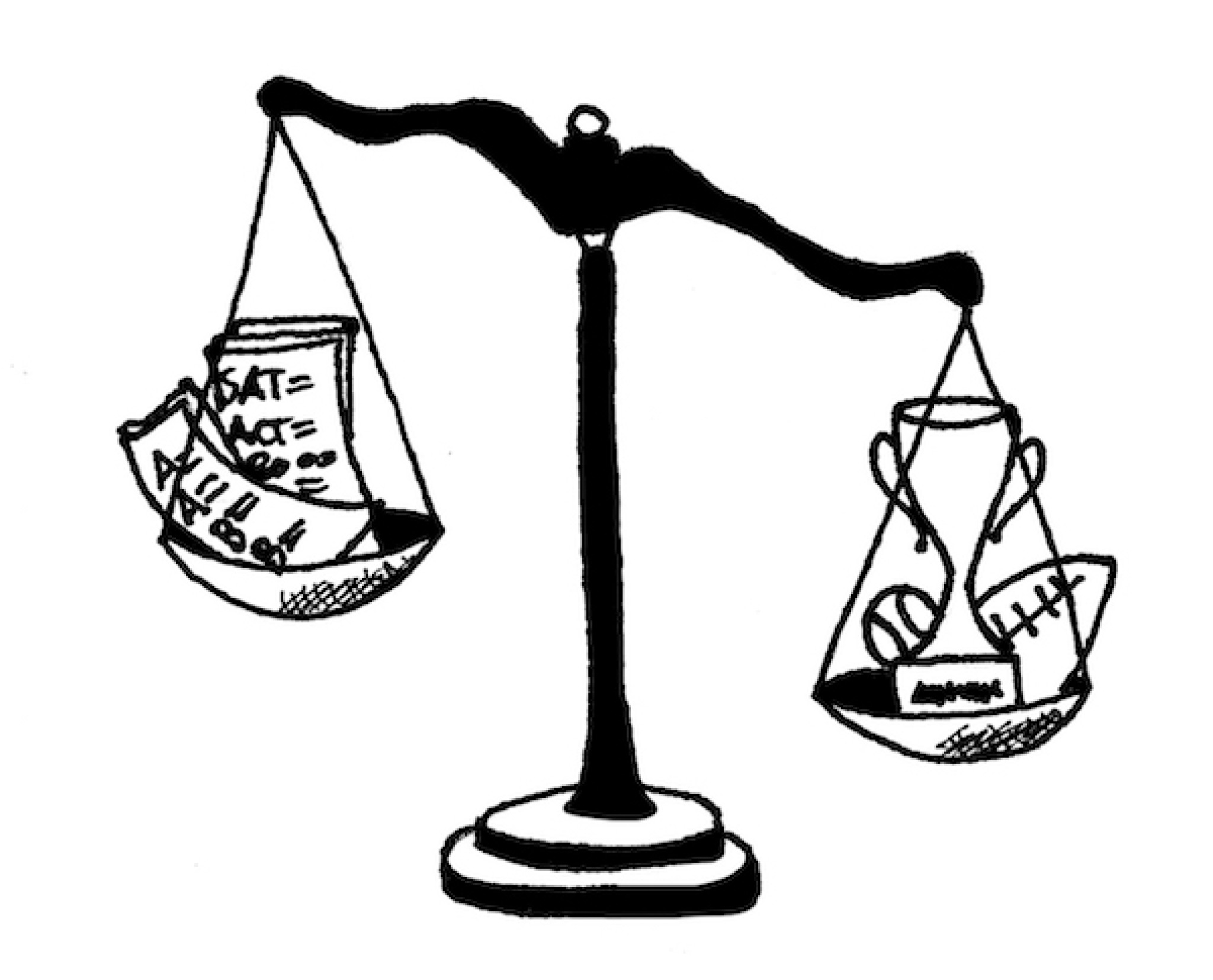Illustration by Ari Libenson
For most high school students, thinking about college doesn’t start until around junior year. However, for aspiring student-athletes, it’s a completely different story. The college recruitment process has long been a way for student-athletes to compete in their sport at a high level while attending a top university or college. Though the reasons that a student may want to be a collegiate athlete may vary, the process is generally the same.
“It starts with just getting on a coach’s radar,” says Jack Ferris, a senior and Washington University of Saint Louis soccer commit. “Start by emailing them: name, team, where you are from, and why you are interested in that school. That turns into them sending back emails, and in turn you telling them to come watch you at games, showcases, and tournaments.”
Leah Freeman, a junior, committed to the University of Oregon for soccer her freshman year. She adds, “Once a school emails you back and has expressed interest, once they see you play, often times they will communicate to your coach trying to set up times for phone calls.” These phone calls give the prospective recruit the opportunity to ask the college coach any questions they might have and express interest, while allowing the coach to promote their college and get to know the player.
During the first part of the process, it’s important for a student athlete to narrow their list of colleges to their top three choices, and “from there, [the student athlete] can single in on a few schools. Then, the college can communicate their level of interest in the student and they can decide if they want to pursue that school or not,” says senior Shira Cohen, who’s committed to Columbia University for soccer.
Following the first direct contact a prospective recruit has with a college, the next step is often Identification (ID) camps, where a specific college hosts prospective recruits on their campus to expose them to their coaching staff and closely evaluate the players.
Once a college has seen the student-athlete play at least twice, then verbal commitment can be an option.
Verbal commitment is essentially a student and a college agreeing to commit to each other; the athlete agrees to maintain a certain level on the field and at school, and a college agrees that if the student meets these conditions then they will be admitted to the school. It is important to note that verbal commitment is not a guarantee. “You need to meet the academic requirements and must be able to go to the school and legitimately compete,” says Kinlay Watkins, a senior committed to play soccer at Vassar College.
So, while it can be relieving for student athletes to commit to a school as early as freshman year, life does not suddenly become easier. Coaches often require their verbal commits to maintain a certain GPA, take the hardest courses their school offers, while at the same time steadily improving in their sport. As Freeman put it, “I have eyes constantly on me.” Moreover, going through the college recruitment process and playing at an elite level in any sport requires an enormous amount of time and effort: “If you are focusing on getting committed, you don’t have the time to join five different clubs and be doing a lot of extracurriculars after school. You are putting all your time and energy into your sport, towards getting better,” says Ferris.
While there are downsides to the college recruitment process, almost every athlete who participated in it says it is worth it in the end: “All the sacrifices I’ve made have led up to this point, where I’m committing to a college and my hard work has paid off,” says Freeman. Ferris adds, “playing is the best part of my week and sports is my outlet; knowing I’m playing [my sport] in college is the best part of the recruitment process.”





